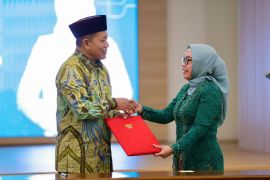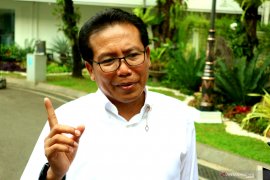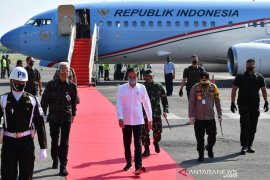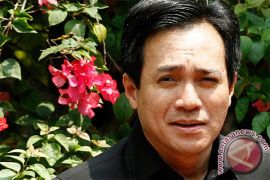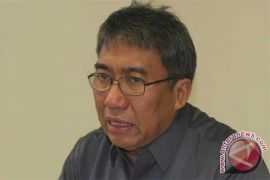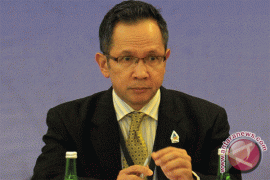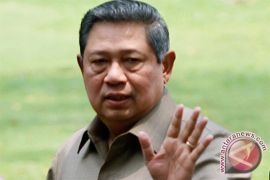"President Susilo Bambang Yudhoyono should focus on improving the ministers` performance, not naming deputy ministers because it will only increase state budget spending," political observer Ahmad Atang who is also assistant to the rector of the Kupang-based Muhammadiyah University, said.
Ahmad questioned the urgency of naming deputy ministers for improving the country`s economy as the step would not improve the cabinet`s performance but instead it waste state budget.
"I really do not understand it, whether it is a ministers` replacement or a formation of a cabinet. Why should deputy ministers be appointed? The central government has given some of its tasks to the regions. If it appoints many deputy ministers what are they going to do?," he said.
In this respect, he said, the step now being taken by the president is only to safeguard himself and his group, not to do something for the people`s interest.
"The appointment of deputy ministers is made to accommodate the interest of political parties in the government coalition, not to serve the people`s interest. The state money spent for deputy ministers` salaries had better be used to develop the people`s economy," he said.
The reshuffle of the Second United Indonesia Cabinet will not make any change to any better because it still applies a static system. "I have said since the beginning that the cabinet reshuffle would not make any change because the system remains there. What is replaced is the ministers not the system," Ahmad said.
Head of the Economic and Public Policy Study Center of the University of Gajah Mada Tony Prasetiantono concurred Ahmad`s arguments.
He said that the appointment of deputy ministers constituted a political accommodation that would burden the state budget. "My impression is that it would cause higher inefficiency, because it is impossible to provide deputy ministers with facilities equal to those for the director generals," he said.
Tony said a deputy minister was badly needed in a strategic institution such as the finance ministry but it was not to important for the ministry of tourism.
He said that the appointment of deputy ministers was not in line with the bureaucratic reforms` spirit which stressed the importance of efficiency through streamlining officers and economizing employees` expenditure.
Ahmad Atang said a good bureaucratic system is clean from corruption practices and abuse of power for private interest or the interests of their group or organizations.
"(Now)Ministers are orienting their services not to the people but to their political organizations. What can we hope if the state is built on the basis of such a system," he said.
The right bureaucracy system is only oriented to the public services not to the power. "So, what needs to be improved is the bureaucracy system. If not, the condition of the nation could not be changed, even if the ministers are replaced every month," he said.
This means that whoever is assigned minister should remove his or her political party`s attributes so that he or she would be able to fully serve the interest of the people.
But what happened today, Ahmad said, is that ministers in the present cabinet continue to maintain their power for their private and group interests.
Therefore, the president should not appoint deputy ministers but empower the director generals to improve the government`s performance.
"In my opinion, the president must empower the director generals, secretary generals and inspector generals of ministries, rather than naming deputy ministers," Ari Junaedi, political observer of the Semarang-based Diponegoro University said.
He said that the naming of deputy ministers would cause overlapping in the tasks between the deputy ministers and director generals.
"We already have director generals, right? I think additional deputy ministers will only waste the state budget," he said adding that it is undeniable that the appointment of deputy ministers will burden the cabinet budget.
A budget must be spent on printing of, for example, name cards and procurement of official cars for the new ministers.
Chief Economic Minister said earlier that a number of ministries had a vast working areas so that deputy ministers were needed to assist the ministers.
Presidential Staff for Political Communications Daniel Sparingga concurred Hatta`s view saying that deputy ministers were needed to increase the capacity of organizations in respective ministries.
He said the appointment of deputy ministers did not cause the swelling of the cabinet members because the deputy ministers were career officials who were shifted as new officials from his position to the deputy ministerial posts.
Hatta Rajasa said that the naming of 19 would-be deputy ministers would not burden the state budget but it would instead make the cabinet performance more effective.
"The (posture of) cabinet will remain as it is so that it cannot be said inefficient by measuring it with salaries, but it should be seen from the aspects of effectiveness and roles that could improve the ministry`s performance.
However, he said, the change of structural positions and names of ministries in connection with the reshuffle of the Second United Indonesia Cabinet was likely to also change the budget which in administrative term would be done by the finance ministry with the House of Representatives (DPR).
"We hope that there would be a chance to discuss it clearly that the changes would cause consequences in the budget of the ministries concerned," he said.(*)
A014/H-NG/O001
Reporter: Andi Abdussalam
Editor: Jafar M Sidik
Copyright © ANTARA 2011

